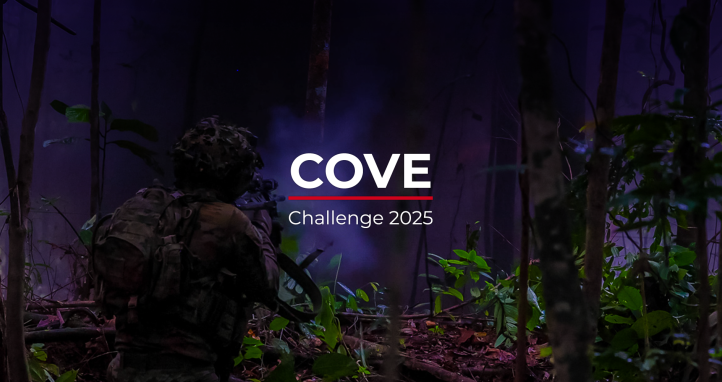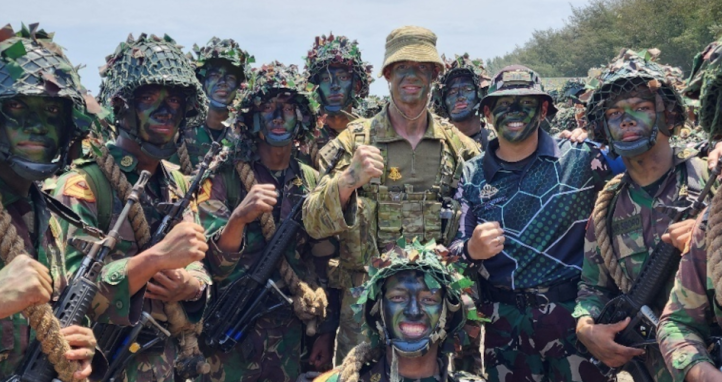At the current time, the Australian Army mentally separates combat from combative sports such as Brazilian Jiu-Jitsu (BJJ), Mixed Martial Arts (MMA), boxing, judo and others. This article will outline how combative sports, through the use of local Integrated Combat Centres (ICCs) and their experienced coaches, can enhance a unit's training program in order to maximise individual and unit likelihood of success in combat.
Combative training, when exercised in a sporting format, exemplifies resilience training on a multitude of levels through exposing members to real risk, extremely challenging conditions, adversity, uncertainty and friction. It is exposure to these conditions that will elicit favourable behaviour in future hostile operational theatres. Every time a soldier steps foot on the mats during a combative (sport) training session they progress through an emotional and physical cycle of growth. This is achieved by first learning a technique, applying the technique in a controlled setting with guidance and then learning how to consolidate that technique by doing what is called “live” training against a non-compliant opponent. This progression of instruction is a mirror image of the Army Combative Program (ACP) developed by former 2 Commando Regiment founding member SGT Paul Cale (retired). Both ACP and combative sports have direct utility in their ability to enhance combatant lethality.
The Inter Brigade Sports Competition (IBSC) Combative Tournament in late 2019 highlighted the benefits that combative sports bring to Army. Informal discussions regarding the competition were had with commanders at varying levels during the tournament. A key theme that arose on multiple occasions was the amount of knowledge that could be learned about the soldiers who competed between five and seven times a day against a mixture of similarly skilled opponents. The soldiers that fought multiple times in one day overcame the real fear of battle and displayed courage, initiative, respect, teamwork, tenacity, calm under pressure, determination and extraordinary amounts of mental resilience to fight and win but also lose and come back from adversity in the next bout. It is highly unlikely that any other sporting setting would have better utility in assessing future leaders, noting the dual requirement to fight on an individual front and assist in the training of Brigade combative team members in the pursuit of success.
There are countless testimonials from military members, police officers and emergency response teams around the world that have hired civilian combative sports instructors to enhance their understanding of going hand to hand with assailants. This is so that first responders in all services can apply non-lethal techniques in the first instance and escalate the application of force to lethal effectively and efficiently if required. As it currently stands, ICC’s throughout Australia are directly enhancing a soldiers lethality, improving their resilience both physically and mentally, fostering Army values and providing soldiers with a testing ground for their effectiveness as an individual on a daily basis through the use of combative sport. This is all done in the same amount of time allocated for physical training and requires far less equipment than a strength session or a battle PT session. The integration of combative sports into a unit training program is achievable for all units and can provide greater benefit to unit fitness than some traditional sessions such as long slow distance (LSD) running or a bodyweight circuit.
Combative sport is a tool that is accessible to commanders at all levels on a daily basis that directly enhances Army’s capability and provides soldiers with a safe and effective training methodology that holds value and utility in everyday life. We may use sport techniques to train safely but we are always thinking about the real world application. Think combat, train combatives.
Want to learn more about the Integrated Combat Centres? If you have access to ForceNet check out the 7th Combat Brigade Combative Centre Group.





The Combatives Tournament Ruleset is different to almost all other competitive combat sports - as it is outcome focussed. What this means is that the rules must enhance the soldiers tactics and mindset to be better prepared for their job. Over many competitions these rules have been adjusted and enhanced to meet requirements.
Through this, the continuation training of soldiers has sparked the development of ACP-IC which is used to enhance ACP training, close quarter tactics and RBT. Soldiers can continue to develop their training and gain recognition through a level/belt system which is unique to the Australian Army.
As a combat veteran of Afghanistan and Iraq with the 6th Battalion I first hand vouch for the importance of these skills.
So much so that I have reached out to them with my own health program so we can continue members training once they discharge to keep them connected with like minded people.
Www.veterangrappling.com